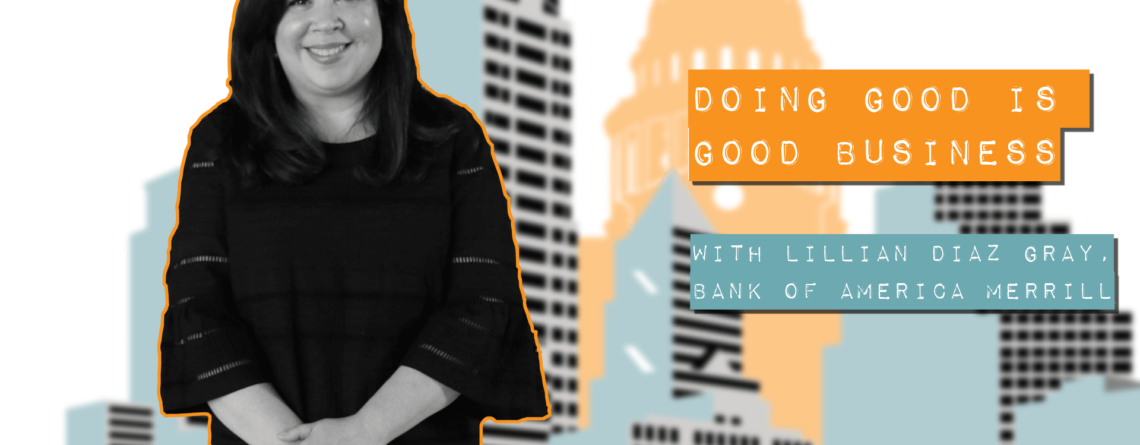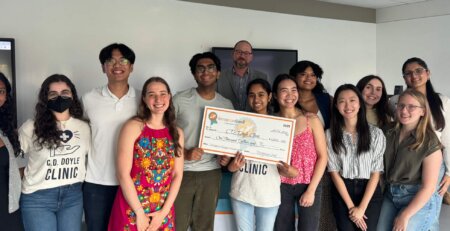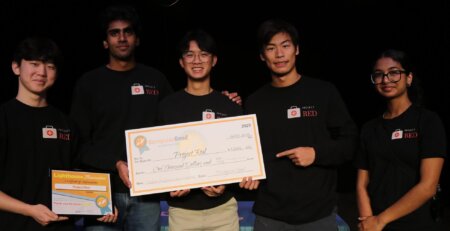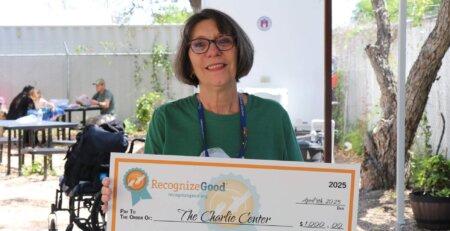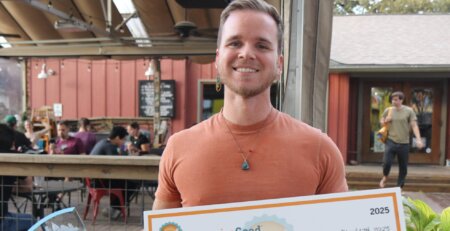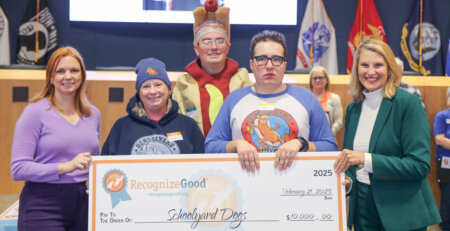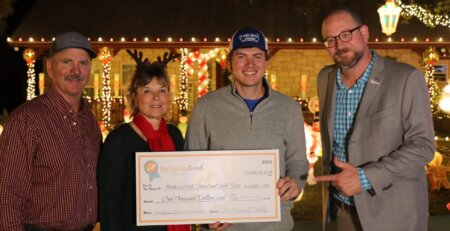Doing Good Is Good Business: Lillian Diaz Gray
Amit Pal2024-01-12T18:18:24-06:00In this series, called “Doing Good is Good Business,” RecognizeGood asks Austin-area business and community leaders that exact question – why IS doing good is simply good business? In this conversation, we hear from Lillian Diaz Gray of Bank of America Merrill.
RecognizeGood: One of the things that stands out about you is that you really show up for others, in quantity and with quality. Your enthusiasm is infectious! Over time, how have you seen the benefits from just being there, being committed when people are looking for help?
Lillian Diaz Gray, Bank of America: That is a great question. I feel that volunteerism becomes about connection, and the more that you engage in a community in that way, the more connections you make. Connections to the communities you serve, connections to the people that you serve, and also connections to the people you’re volunteering with.
I see that at my company, people connect with one another over volunteerism. Volunteering also connects you to an issue or a challenge that you’re really interested in, and I think that you’re able to connect to that too and find different ways to create pathways. The more you’re just there, the more you can do.
RG: Are those connections about relationships for you, or passions, or resources, or all of the above?
LDG: The deeper those relationships are, the more you develop this conviction that you can indeed have that impact to open pathways, and to offer solutions, and to be a force for good. And I think that helps to drive impact.
RG: You do a ton, but it seems like you’ve got three main focuses with the time you give – women, the Hispanic community and education. Is that fair to say?
LDG: I think that’s absolutely the case, yes. I was born and raised in San Juan, Puerto Rico. I’m also a Yale graduate – my parents are university graduates too, but I’m also the granddaughter of a man who didn’t finish high school. He fought fiercely for my father’s education and that of my aunts and uncles, so my cousins and I stand today as beneficiaries of that, and of the transformation that my grandfather created in our family.
Think about that, multiplied and amplified – I think about how many families can be transformed through access to a high-quality education. How many families can be like mine and find a different path to making an impact in their community?
So when I see a Hispanic girl or woman that wants to pursue higher education, and I see them facing some barriers to doing so, I want to remove them. I want to also help provide support to their families, because that’s not always easy navigation for a family that perhaps is not familiar with the journey to and through college, when they want to support their child.
That’s why I’m very passionate about increasing the representation of Latina women in higher education – because I really believe that it can transform families and communities. Mine is a great example of that.
I’m so grateful for my father, my aunts and uncles – they let us know the reason we could sit at home thinking about which college we would go to, and that it is a privilege.
RG: You’re at an organization where that’s now just allowed, but it’s very much encouraged. How important is that? Are you basically living your best life because you’ve got an organization that supports your passions?
LDG: I think that all of us who are part of Austin Gives are very fortunate because we’re working for companies that encourage us to connect to the community, encourage us to go out there and do things that are above and beyond our day jobs, and I think that it’s really a privilege. A great opportunity.
RG: Your company could just say “Do that stuff on your own time,” right? But they don’t. You’re doing it on company time sometimes, and you’re very much encouraged to blend what you’re passionate about outside of work.
LDG: I think it’s great for our companies too, because we get to know our clients. We get to connect to the communities in ways that we might not be able to otherwise. I know it’s made me a better employee, and also a better colleague because I’m connecting with my colleagues in many ways. I’m finding out things that are important to them as we volunteer together, and I think that it allows us to better serve our clients.
Personally, I just think that corporations in general have a responsibility to be good citizens. We don’t exist in a vacuum. We exist in a community and to the extent that we can interact, connect with that community and drive positive impact, we’ll be more successful – business-wise, and in all the ways that matter beyond business.
RG: There are many companies that can’t necessarily pay someone a full salary to manage community relations, and some might think those that can are essentially paying someone to do good on behalf of the company. What’s your take on your general role for Bank of America?
LDG: Before I became the Community relations manager at Bank of America, I was already very active in the community – I feel that all those volunteering engagements, the board service, the interaction with different organizations in our community all really led me to the job that I have now! How lucky is that? How many times can you say that your personal mission and what you do for business align?
I’m very, very fortunate that I was able to bring my passion into my company instead of searching for it elsewhere. That’s why I always tell people to pay attention to your passions outside of work – you never know whether that might be your job tomorrow! There may be an opportunity for you to really amplify that purpose.
RG: What about exposure to different issues and causes? Is that something you’ve seen benefit employees who volunteer through their place of work?
LDG: As people who live in Austin, we all have an opportunity to contribute. Sometimes you just don’t know where to start, so I think that volunteering opportunities provide a starting point. And again, a company is engaging its employees in a very personal way – identifying what they care about, connecting them with that passion. I think it’s a gift.
